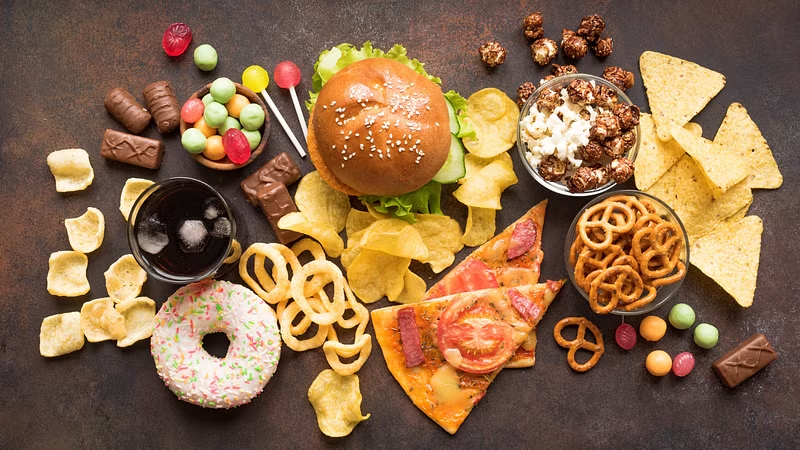Introduction: What Are Ultra-Processed Foods?
Ultra-processed foods (UPFs) dominate modern diets, offering convenience but at a high health cost. From packaged snacks to fast food, these items undergo extensive processing and contain additives that can harm your body.
Why Are Ultra-Processed Foods Harmful?
Studies link UPFs to several health issues:
1. Obesity – High in sugar, unhealthy fats, and calories, leading to weight gain.
2. Heart Disease – Trans fats and excess sodium contribute to cardiovascular issues.
3. Diabetes – Artificial sweeteners and refined carbohydrates spike blood sugar.
4. Cancer Risk – Chemical preservatives and additives may be carcinogenic.
5. Gut Health Disruptions – Lack of fiber and excess additives harm gut bacteria.
Common Ultra-Processed Foods You Should Avoid
Some everyday foods fall into the UPF category:
– Sugary cereals and flavored yogurts
– Instant noodles and packaged soups
– Processed meats (sausages, hot dogs, deli meats)
– Soft drinks and sugary beverages
– Pre-packaged frozen meals and snacks

The Additive Problem: What’s Hiding in Your Food?
Ultra-processed foods often contain harmful additives, including:
– Artificial Sweeteners (Aspartame, Sucralose) – Linked to metabolic issues.
– Preservatives (Sodium Nitrate, BHA, BHT) – Potentially carcinogenic.
– Flavor Enhancers (MSG) – May cause headaches and allergic reactions.
– Emulsifiers – Affect gut health and digestion.
Healthier Alternatives to Ultra-Processed Foods
Switching to whole, minimally processed foods can significantly improve health. Try:
– Fresh fruits, vegetables, and homemade meals
– Whole grains instead of refined products
– Natural protein sources like legumes, eggs, and lean meats
– Water and herbal teas instead of sugary drinks
Conclusion: Rethink Your Diet for a Healthier Future
Ultra-processed foods are convenient but come with hidden risks. By making informed choices and opting for natural, whole foods, you can improve your health and well-being. Small changes today can lead to a healthier tomorrow!


